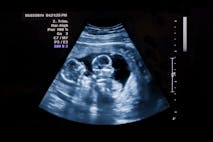
Study: Nearly half of women suffer moderate to high distress after abortion
Michael J. New
·
British teen battles courts for right to live as NHS fights to remove life support
A British teenager with a degenerative disease wants to travel to Canada for experimental treatment, but a court has ruled against her, saying that she does not have the right to make her own medical decisions. Instead, she must submit to the National Health Service (NHS), which wants to force her into palliative care, and put a do-not-resuscitate (DNR) order into place.
The girl, identified only as S.T., has a mitochondrial disease, which is said to be similar to that of Charlie Gard, whose life support was removed by the NHS due to his disability as well.
S.T. is 19, and said she wants to be given the chance to fight to the end. “This is my wish,” she said. “I want to die trying to live. We have to try everything.”
According to the Telegraph, S.T. has lived in an intensive care unit (ICU) for the past year, where she receives nutrition through a gastrostomy tube, uses mechanical ventilation, and undergoes regular dialysis. She also has sight and hearing loss, muscle weakness, bone disease, and damage to her kidneys and lungs — though her brain function remains sharp.
Two psychiatrists examined S.T., who said she does not have any mental illnesses, and has the mental capacity to make her own decisions.
Yet the court still ruled against her, with Mrs. Justice Roberts siding with the hospital, who said S.T.’s desire to live is a “delusion.”
Article continues below
Dear Reader,
In 2026, Live Action is heading straight where the battle is fiercest: college campuses.
We have a bold initiative to establish 100 Live Action campus chapters within the next year, and your partnership will make it a success!
Your support today will help train and equip young leaders, bring Live Action’s educational content into academic environments, host on-campus events and debates, and empower students to challenge the pro-abortion status quo with truth and compassion.
Invest in pro-life grassroots outreach and cultural formation with your TRIPLED year-end gift!
“S.T. is unable to make a decision for herself in relation to her future medical treatment, including the proposed move to palliative care, because she does not believe the information she has been given by her doctors,” Roberts said. “Absent that belief, she cannot use or weigh that information as part of the process of making the decision.”
Disturbingly, Roberts seemingly acknowledged that the experimental treatment S.T. wants to try could help — but that as her life would still end “prematurely,” it is not worth trying. “At the heart of the issues in this case is what ST and her family perceive to be a ray of hope in the form of an experimental nucleoside treatment outside the United Kingdom which might offer her hope of an improved quality of life, albeit a life which is likely to end prematurely in terms of a normal life expectancy,” Roberts said, adding:
In my judgment, and based upon the evidence which is now before the court, I find on the balance of probabilities that ST’s complete inability to accept the medical reality of her position, or to contemplate the possibility that her doctors may be giving her accurate information, is likely to be the result of an impairment of, or a disturbance in the functioning of, her mind or brain.
Her family said the ruling is a “grave injustice,” and they will continue fighting to appeal Roberts’ decision.
Andrea Williams of the Christian Legal Centre, which is representing S.T., told the Daily Mail, “This frightening case highlights everything that is wrong with the practice of end-of-life decision-making in the NHS and the courts. It shows profound disrespect for the wishes and beliefs of the patients and their families. What can be more natural or rational for a seriously ill 19-year-old than to leave no stone unturned and to take every chance of survival?”

Live Action News is pro-life news and commentary from a pro-life perspective.
Contact editor@liveaction.org for questions, corrections, or if you are seeking permission to reprint any Live Action News content.
Guest Articles: To submit a guest article to Live Action News, email editor@liveaction.org with an attached Word document of 800-1000 words. Please also attach any photos relevant to your submission if applicable. If your submission is accepted for publication, you will be notified within three weeks. Guest articles are not compensated (see our Open License Agreement). Thank you for your interest in Live Action News!

Michael J. New
·
Issues
Right to Life UK
·
Issues
Nancy Flanders
·
Analysis
Cassy Cooke
·
International
Angeline Tan
·
International
Cassy Cooke
·
Analysis
Cassy Cooke
·
Analysis
Cassy Cooke
·
International
Cassy Cooke
·
Analysis
Cassy Cooke
·
Analysis
Cassy Cooke
·